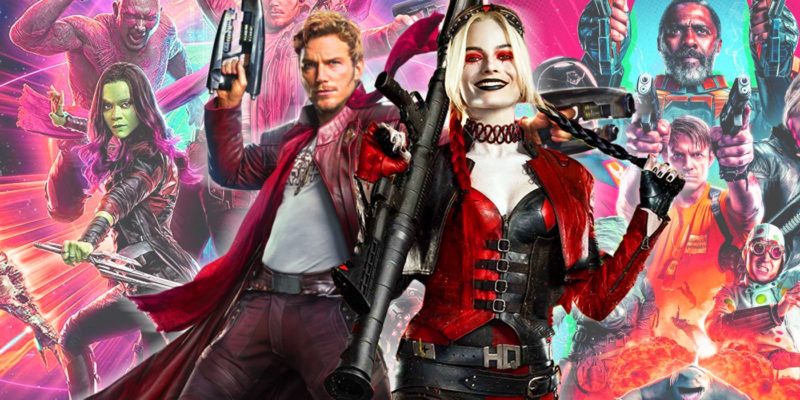
[ad_1]
While far from family-friendly, James Gunn’s The Suicide Squad continues his exploration of family from the Guardians of the Galaxy movies.
WARNING: The following contains spoilers for The Suicide Squad, now in theaters and streaming on HBO Max.
Writer and director James Gunn has unleashed an explosion of carnage and gore for his DC supervillain epic, The Suicide Squad, a far cry from the family-friendly tone of his Marvel franchise, Guardians of the Galaxy. With that said, “family” still binds the two series together, as Gunn’s ragtag DC Extended Universe team shares many of the burdens of their Marvel Cinematic Universe counterpart.
During Gunn’s two Guardians films, he gives most of its titular heroes trauma connected to their parents, be it Chris Pratt’s Star-Lord losing his mother to cancer or Zoe Saldana’s Gamora being raised as an assassin by Josh Brolin’s Thanos. They also tackle being parents themselves, raising Vin Diesel’s Baby Groot in Guardians of the Galaxy Vol. 2. These struggles all reappear in The Suicide Squad, in which Gunn illuminates the harm done to and by its protagonists before joining Task Force X.
In particular, Idris Elba’s Bloodsport has issues from his relationships with his father and his child. Similar to Gamora and Karen Gillan’s Nebula, his father trained him to be a killer, and like Nebula, he was tortured for any of his failures. Gamora and Nebula at first seemed bound to the dark road Thanos had laid out for them, while at the start of The Suicide Squad, Bloodsport tells his daughter, Storm Reid’s Tyla, “Any goodness I ever had in me [has] been wrung out bare by my old man.”
This effort to push away anyone who cares about him is partly why he is initially hostile towards Daniela Melchior’s Ratcatcher 2 and her pet rat, Dee Bradley Baker’s Sebastian. In that, he resembles Bradley Cooper’s Rocket Raccoon in Guardians Vol. 2, who tried to alienate his teammates because he was afraid to reciprocate their friendship. It is only through opening up — be it to Michael Rooker’s Yondu for Rocket or Ratcatcher 2 for Bloodsport — that the two characters learn to accept that others love them and want them in their lives.
Rocket’s story also connects him to David Dastmalchian’s Polka-Dot Man, as both were subjected to brutal experiments by their respective creators. Just as Rocket is metaphorically haunted by the scientists who tore him apart from the inside out, Polka-Dot Man is literally haunted by his mother, his mind turning everyone he sees into the woman who purposely infected him with an interdimensional virus.
Rocket and Polka-Dot Man deal with their bizarre existences very differently. Any apparent insult causes Rocket to lash out, whereas Polka-Dot Man typically sinks further into suicidal depression. They are, however, driven by the same feeling of inadequacy, the deep-rooted belief that they will not amount to more than the freaks of science their “parents” made them into, which they only overcome through newfound purpose and respect within their new teams.
In fact, Ratcatcher 2 is the only one whose self-realization is about embracing what her father intended for her, serving as his official successor to bring down Starro the Conqueror. The rest that achieve this mostly reject the paths their parents carve out for them, be it Star-Lord refusing to join Kurt Russell’s Ego in dominating the universe or Bloodsport discovering that he is more than a hired gun. They instead define themselves by who they alone choose to be, and let in the people who perceive them as they truly are without preconceived expectations.
This is not to say that Gunn displays no value in a child’s relationship with their parent. As Ratcatcher 2 wields her late father’s rat-summoning device, so too does Star-Lord treasure the mixtapes from his late mother, and both serve as parents of sorts to Sebastian and Groot respectively. What Gunn does in Guardians of the Galaxy and The Suicide Squad is make family a conscious choice, a decision to bond with and cherish only the people who love us, whether they are related by blood or not.
To see these supervillains find their true families, watch The Suicide Squad now in theaters and on HBO Max.
About The Author
[ad_2]






